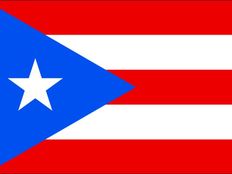
The island Commonwealth of Puerto Rico, has certainly had an eventful few weeks since our last update on the ongoing fiscal pressures. The biggest headlines have been a US congressional discussion regarding Puerto Rico and Chapter 9, and the potential of a commonwealth agency to miss their August 1st bond payment.
Just this week, Senators Chuck Schumer and Richard Blumenthal, crafted and presented a bill that has the potential to allow Puerto Rico, along with their municipalities and public corporations to seek Chapter 9 bankruptcy protection. This new bill, which is an add on to the February H.R. 870 bill, has Democratic support, but at this time, no true Republican approval. Authors of the bill have stated their belief that Puerto Rico and their creditors should be deserving of a fair and orderly work-out process that the Chapter 9 filing could provide. While the thoughts among Democrats to grant bankruptcy power to Puerto Rico are not new ideas, the thought that there may be the potential for bi-partisan support is a newer development. This comes on the heels of the IMF report that took a deep dive into the island’s staggering debt and much political lobbying by Puerto Rican Governor, Garcia Padilla, and his staff.
Impact on Bond-Holders
In the days leading up to the newest bill proposal, there has been a lot of public opinion on what the market impact would be on bond-holders and what the best course of action should be for the island. In a Wall Street Journal article from July 3rd, a case was laid out for the success of Chapter 9 in the case of Detroit. With the quarterbacking of emergency manager, Kevyn Orr, the City was able to not only restructure debt but rewrite labor contracts, cut pensions and reorganize public agencies. In the case of Puerto Rico, a simple restructuring of debt would just touch the surface due to the deep rooted issues that brought the commonwealth to the poor fiscal state it finds itself in. Market pundits have chimed in stating their doubts that the bill would be passed. Most notably, Morgan Stanley has expressed their doubt due to the very complicated politics surrounding the issue. Further, they feel that Congress will focus attention on more pressing domestic issues such as a permanent fix to the Highway Trust Fund.
Meanwhile credit spreads on the island’s debt continue to push wider. While some analysts feel that the insured obligations for Puerto Rico offer superb relative value at the current time, the flip side of the argument could be the sheer size of exposure to the bond insurers. No matter what the situation, most bond-holders are looking at some type of haircut for non-insured obligations. Moody’s Investor Service released a study this week that put expected recovery values for the majority of the island’s debt at less than 60%. Senior Sales tax bonds and straight general obligation debt fared slightly better with expected recovery rates between 60-72%.
The Bottom Line
Keeping in the theme of hair-cuts, Puerto Rico announced that one of its agencies, the Public Finance Corporation, may miss its August 1st principal and interest payment. Officials have stated that the failure to pay is not an unwillingness issue, but due in part to the legislature failing to appropriate funds with last month’s budget approval. The ramifications of this missed payment (the 1st for by a Government Development Bank entity) will be further closure from the capital markets and wider credit spreads. It is unclear whether the government can use funds on hand to make this payment, but it would need legislative approval to do so.






